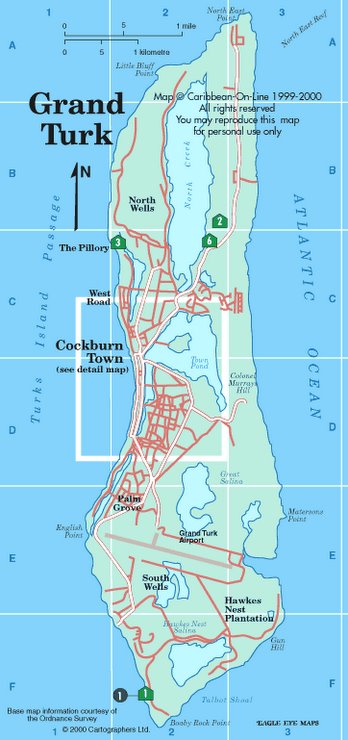In 1831 Mary Prince became the first published black woman in Britain when The History of Mary Prince, A West Indian Slave was printed.
Her autobiography recounted her brutal life as a slave in Bermuda, Grand Turk and Antigua, the book was filled with the floggings, rapes and hard labour she endured.
The daughter of slaves, Mary was born at Brackish Pond, Bermuda, in about 1788. In 1829 after her owners brought her to London she was kicked out of their home and found refuge with a member of the Anti-Slavery Society. He arranged for Mary's life story to be published. She had hoped that by exposing the evils of slavery she would help end the slave trade. Mary is credited with galvanizing support for the anti-slavery movement.
Here is an excerpt from Mary's autobiography about what life was like on the salt ponds of Grand Turk — the very same ones the Spirit of Bermuda crew visited.
"I was immediately sent to work in the salt water with the rest of the slaves. This work was perfectly new to me. I was given a half-barrel and a shovel, and had to stand up to my knees in the water, from four o'clock in the morning till nine, when we were given some Indian corn boiled in water, which we were obliged to swallow as fast as we could for fear the rain should come on and melt the salt. We were then called again to our tasks, and worked through the heat of the day; the sun flaming upon our heads like fire, and raising salt blisters in those parts which were not completely covered. Our feet and legs, from standing in the salt water for so many hours, soon became full of dreadful boils, which eat down in some cases to the very bone, afflicting the sufferers with great torment. We came home at twelve; ate our corn soup, called blawly, as fast as we could, and went back to our employment till dark at night. We then shovelled up the salt in large heaps, and went down to the sea, where we washed the pickle from our limbs, and cleaned the barrows and shovels from the salt. When we returned to the house, our master gave us each our allowance of raw Indian corn, which we pounded in a mortar and boiled in water for our supper...
"When we were ill, let our complaint be what it might, the only medicine given to us was a great bowl of hot salt water, with salt mixed with it, which made us very sick. If we could not keep up with the rest of the gang of slaves, we were put in the stocks, and severely flogged the next morning. Yet, not the less, our master expected, after we had thus been kept from our rest, and our limbs rendered stiff and sore with ill usage, that we still go through the ordinary tasks of the day all the same. Sometimes we had to work all night, measuring salt to load a vessel; or turning a machine to draw water out of the sea for the salt-making. Then we had no sleep-no rest-but were forced to work as fast as we could, and go on again all next day the same as usual. Work, work, work-oh that Turks Island was a horrible place! The people in England, I am sure, have never found out what is carried on there."
Friday, May 30, 2008
Subscribe to:
Post Comments (Atom)
About Me

- Guanahani a.k.a. Grand Turk.
- Grand Turk., Turks & Caicos Islands
- Acerca de 1942 Columbus on his first voyage to the New World he landed on the island of Guanahani (plenty water), which is known today as Grand Turk.There are other claims. Also on his first voyage, Columbus spoke about the water inland. The only Island in the Archipelago which has a lot of water is Guanahani as the name applies. Welcome to our page, feel free to make comments. We reserve the right choose and refuse. Just sit back, relax and enjoy.
The Island of Grand Turk.

1 comment:
Hey u guys give us a break, we were not responsible for the slavery in the salt pans in Grand Turk. The Bermudans brought them to work.They got rich off them.
Post a Comment